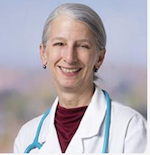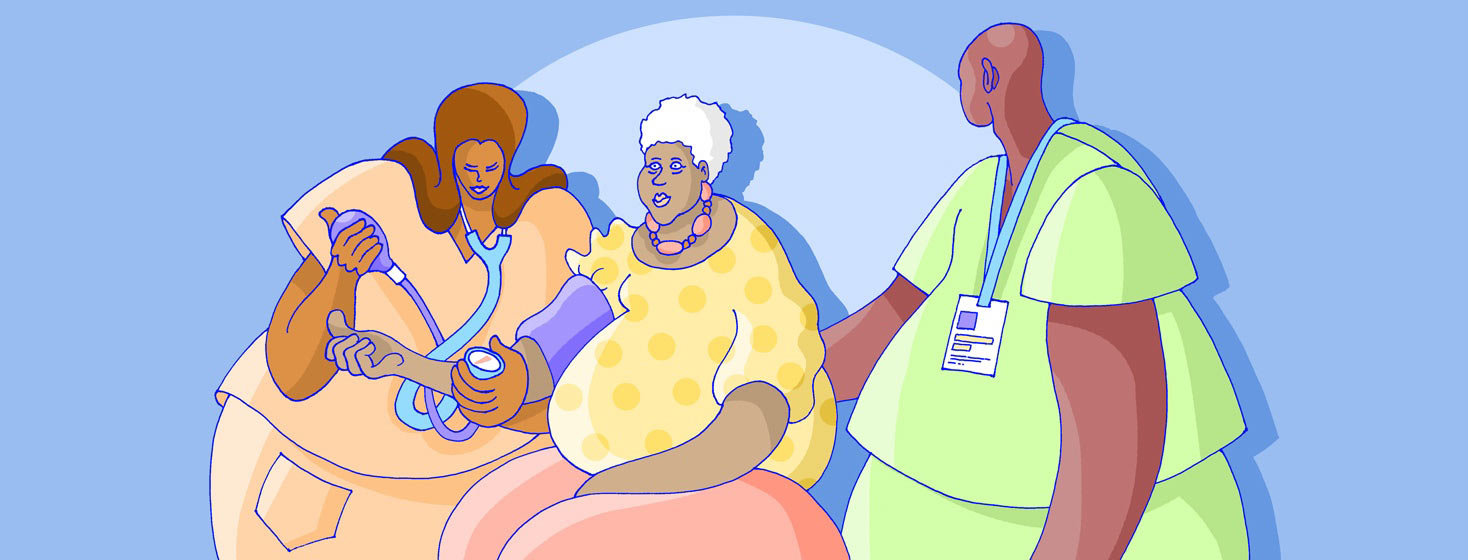Aging with HIV: Tailored Care for People Who Are 50 and Older
Imagine your 60th birthday. Maybe you have been living with HIV for most of your life, and you are doing well on antiretroviral therapy (ART). But now, you have diabetes.
Your cholesterol is a little high, too, and you wonder if you might be depressed. Maybe you had an abnormal Pap test or you are struggling with hot flashes.
What do you want your health care team to look like? You have someone to manage your ART, but what about the REST of you? How do you find the best care for your whole self?
Aging with HIV
In the United States, more than half of people who are living with HIV are 50 and older. Many are long-term survivors, meaning they have lived with HIV for decades. About 16 out of every 100 new HIV diagnoses are in people 50 and older.1,2
It is important to know what health issues are common as you age with HIV. This will help you focus on prevention and early detection, and find a health care team to support you.
Common health problems that happen with age
Many health problems are simply more common as we get older — with or without HIV. Some of these chronic health conditions may happen more often in people living with HIV.3
- High cholesterol
- High blood pressure
- Heart attacks
- Diabetes
- Kidney disease
- Depression and anxiety
- Memory problems
- Bone loss
- Cancer
These conditions can often be treated, especially if found early. There are screening tests (tests done to find problems before they become obvious) to check for many of them. If you haven’t already, talk with your doctor about when you should start having these screening tests.
What could tailored HIV care look like?
The number of appointments can get to be a burden if you are following up on ART plus other health problems. Plus, your diabetes doctor or gynecologist may not know that much about living with HIV. To provide more holistic care, a number of clinics now include HIV care and other specialists as well.4-7
A clinic for those 50 and older
A London clinic has created a model where people can get all their care in 1 place.8
They formed a clinic specifically for people over 50 who are living with HIV, where they can manage their HIV care along with all their other screening tests and most follow-up care.
They brought in specialists like pharmacists, counselors, and heart doctors. From diabetes to menopause to mental health, a team all works together to help older people with HIV be as healthy as possible. They also connect clients with peers who are aging with HIV.9
Who were the participants?
This clinic evaluated 744 people who were 50 and older and living with HIV. They were almost all male, mostly white, and in their 50s. Almost all were taking ART and 96 percent had undetectable viral loads.
They found most of the people attending the clinic had health conditions in addition to HIV, and nearly half of them were taking medicines for these problems.
Half had high cholesterol. Other common conditions were high blood pressure, depression and anxiety, obesity, osteoporosis, kidney disease, and diabetes.
Assessing risk to deliver better care
It is not yet clear how living with HIV might affect other health conditions. People who are 50 and older and living with HIV tend to have more health problems than people of the same age who are not living with HIV.3
Specific tools for people who are HIV-positive
Doctors use risk calculators to try to predict who might get an illness, so they can recommend the best treatment. But, it seems these risks may be different for people living with HIV.
For example, heart disease is more common in men living with HIV than the traditional calculators would predict. The London clinic has created a specific risk tool for people living with HIV that may be more accurate and help prevent serious illness.8,10
Groundwork for better holistic care
Getting older while living with HIV is a victory. It also brings new challenges.
It can be hard to figure out how to keep track of new doctors and new medicine. Creative, holistic clinics that provide care that is tailored to you, in a single location, are an exciting trend to support your best health.
 Dr. Audrey Sheridan is a board-certified obstetrician-gynecologist (OB-GYN) and also a caretaker for her dad. Dr. Sheridan is inspired by people finding their way through life-changing medical situations with resilience and is interested in how we can increase our mental durability in the face of the unpredictable.
Dr. Audrey Sheridan is a board-certified obstetrician-gynecologist (OB-GYN) and also a caretaker for her dad. Dr. Sheridan is inspired by people finding their way through life-changing medical situations with resilience and is interested in how we can increase our mental durability in the face of the unpredictable.
Join the conversation